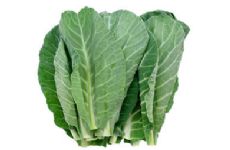|
Many religions recommend fasting for both spiritual and/or health benefits. All religious fasts are different: Some restrict certain foods, while others only restrict the times of day in which one can eat. Few religious fasts involve a long-term or complete abstinence from food, but no matter what the nature of the fast is, you may wonder just how it really impacts your health. Three religious fasts have been studied the most:
Read on to find out how these fasts impact your health and weight-loss efforts. RamadanDuring the holy month of Ramadan, all healthy adult Muslims are forbidden from consuming any food or water from sunrise to sunset. It is a common practice to eat one large meal after sunset and one lighter meal before dawn. While many people that Ramadan fasting leads to reduced calorie intake and weight loss, recent studies have found that for many of the participants actually eat more calories during Ramadan because the two meals often contain higher-fat foods than their typical (non-fast) diet.Ramadan fasting may impact the clinical markers for heart health, but research results have been mixed. Some studies have found improvement (an increase in the healthy HDL levels and a decrease of the "bad" LDL levels), while other studies discovered the exact opposite. Some research found that blood pressure and resting heart rate decreased in Ramadan participants, while other studies found no difference. The same can be said about the studies evaluating blood sugar levels during Ramadan. Some studies showed improvement while other studies found no effect. It appears that Ramadan may have a negative impact on sleep quality, decreasing slow wave sleep and rapid eye movement (REM) sleep. This lack of quality sleep has been shown to result in irritability and an increase in caffeine intake using coffee and tea. Ramadan fasting can also increase gastric secretions and overall gastric acidity throughout the day, which could lead to ulcer complications. Other potential adverse health effects associated with Ramadan fasting include energy level imbalances, dehydration, decreased athletic performance, and altered circadian fluctuations in hormone levels. Changes in food choices, eating habits, physical activity, and sleep routines are all variables that could be impacting one’s overall health during the Ramadan fast. Being aware of how these changes impact health is crucial. It may be necessary to have a larger, hearty meal before sunrise, thus providing the calorie-providing energy for daily activities or light exercise. A lighter evening meal would be less taxing on the stomach, less time to prepare and allow for better sleep. Total food intake for the day should be geared toward meeting calorie and nutrient needs. Greek Orthodox FastsThere are three principal fasting periods for Greek Orthodox Christians. Each fasting period has a slightly different food composition.
Most research studies have reported that participants consume fewer calories during these fasting periods, which can result in weight loss for some people. However, because people are eating less meat and dairy, their carbohydrate and fiber intake increases while their calcium, protein, fat, saturated fat and trans-fatty acid intake also decreases, usually resulting in a decrease in total cholesterol and LDL levels. The fasting periods have not been shown to lower blood sugar levels, nor was there a change in hemoglobin, serum iron or transferrin levels. Because these fasts go on for so many days, participants may want to include a calcium supplement to make up for their reduced calcium intake. Daniel FastThe Daniel fast is based on the Biblical story of Daniel in which Daniel resolved not to defile himself with the royal food and wine. He and his three friends ate nothing but vegetables and water for 10 days. Later Daniel partook in a 21-day period of "clean" eating, during which time he ate no meat or wine.Based on these two fasts by Daniel, a modern day Daniel Fast involves unlimited intake of fruits, vegetables, whole grains, nuts, seeds, and oil. This fast if very similar to a vegan diet (no animal products) but is stricter, because all refined carbohydrates, preservatives, additives, sweeteners, flavorings, caffeine, and alcohol are also forbidden. In the literature, excellent compliance has been noted with the Daniel fast as well as improvement in mood and feelings of fullness. Many health variables have shown to improve, including total cholesterol, LDL, blood pressure and blood sugar. Body weight and body fat improved slightly but were not statistically significant. Conclusion It is not the intent of this article to dismiss any religion or religious fasting practice. As already stated, limited data is available for other forms of religiously motivated fasts. The impact of religious fasting on one’s weight and health remains an area for warranted research. Most healthy adults can safely fast for one day and their bodies will be able to adjust, drawing upon energy and nutrient stores. However, always check with your physician regarding how fasting will affect your medical conditions, medications, and health history. Certain disease conditions may warrant against fasting altogether. You should also discuss with your doctor the specific danger signs and symptoms that would indicate the need to stop the fast, such as dizziness, lightheadedness, inability to focus or concentrate, blurred vision, heart rate changes, etc. Talking with your religious leaders can help you determine an appropriate fasting option to meet both your medical needs and religious commitment. References Mehta LH, Roth GS. Caloric restriction and longevity: the science and the ascetic experience. Ann N Y Acad Sci. 2009 Aug; 1172:28-33. http://www.ncbi.nlm.nih.gov/pubmed/19735237 Pamplona R, Barja G. Mitochondrial oxidative stress, aging and caloric restriction: the protein and methionine connection. Biochim Biophys Acta. 2006 May-Jun;1757(5-6):496-508. http://www.ncbi.nlm.nih.gov/pubmed/16574059Trepanowski J, Canale R, Marshall K, Kabir, MM, Bloomer R. Impact of caloric and dietary restriction regimens on markers of health and longevity in humans and animals: a summary of available findings. Nutr J. 2011; 10: 107. http://www.ncbi.nlm.nih.gov/pmc/articles/PMC3200169/ |
More From SparkPeople |





.png)












.jpg)


.jpg)
.png)